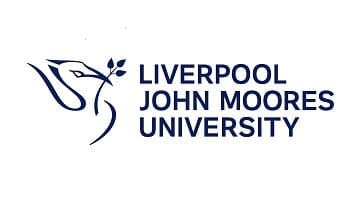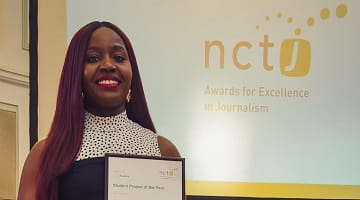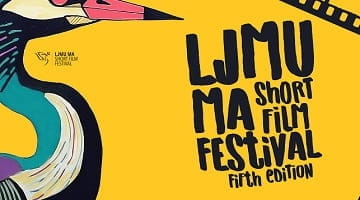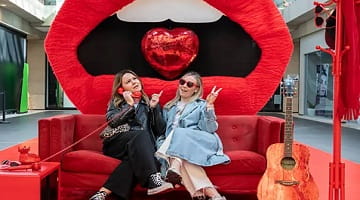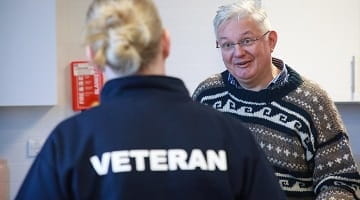Why study this course with LJMU?
- You will study media institutions such as the BBC and Netflix and the cultures of production and consumption that surround them
- You will develop professional writing skills, learn to communicate with a range of audiences, and critically reflect on what you produce
- WATCH: hear from one of our graduates Rubi
- We focus on theoretical and critical study as well as transferable skills development
- You will be taught by research-active staff and learn from media and cultural industry guest speakers
- Emphasis on employability and work-based learning from the start of your degree
- Our graduates go on to careers such as journalism, marketing, education, public relations and more
- 95% of students surveyed said the teaching staff on our media courses were good at explaining things (National Student Survey 2024)
About your course
The media have a major impact on how we understand our world, ourselves and other people. The BA (Hons) in Media, Culture, Communication at Liverpool John Moores University enables you to analyse the social, cultural and political importance of the mass media, everyday culture, and the communications industries, with a focus on employability, career development and critical skills. The course will teach you how to write and research for a range of audiences, both academic and professional.
This BA (Hons) course offers a variety of modules covering aspects of the media, culture and communications industries. Our students enjoy the broad range of the programme, which expands their choices after graduation, while allowing them to specialise in their own areas of interest as they progress. We examine industries like film, television and games, sectors like advertising, public relations, journalism and publishing, and aspects of everyday culture like consumerism, identity and social media.
The programme is designed with your future employability in mind. You'll develop transferable skills in research, communication, problem-solving, teamwork and independent working. Although we focus on theoretical and critical study, our students work on current case studies that are developed with employers, and work-related learning is designed into all levels of study. Many students undertake exciting and rewarding placements, internships and work experience during their programme.
Course modules
What you will study on this degree
Further guidance on modules
Modules are designated core or optional in accordance with professional body requirements, as applicable, and LJMU’s Academic Framework Regulations. Whilst you are required to study core modules, optional modules provide you with an element of choice. Their availability may vary and will be subject to meeting minimum student numbers.
Where changes to modules are necessary these will be communicated as appropriate.
Core modules
Core modules
Optional modules
Core modules
Optional modules
Professional accreditation
We have worked with a range of organisations, including: The Liverpool Comedy Trust, Tate Liverpool, Sound City, The British Music Experience, BBC Radio Merseyside, Open Eye Galley, Merseyside Police, the NHS, ITV Studios, Everyman Theatre, the Museum of Liverpool and the Liverpool Against Racism Festival.
Your Learning Experience
Excellent facilities and learning resources
We adopt an active blended learning approach, meaning you will experience a combination of face-to-face and online learning during your time at LJMU. This enables you to experience a rich and diverse learning experience and engage fully with your studies. Our approach ensures that you can easily access support from your personal tutor, either by meeting them on-campus or via a video call to suit your needs.
Teaching is via a combination of lectures, seminar-workshops, peer presentations, online activities and film screenings, and you are expected to spend a significant proportion of your time in private study, using our virtual learning environment, Canvas, as well as our archives and special collections. There will also be opportunities for online discussion with staff and your fellow students.
Work-related Learning
Work-based learning is a vital part of this degree and gives you a taste of what its really like to work in the media and cultural industries. You will not only get to practise skills you have learnt on the course, but you will also be able to add the experience to your CV, giving you a head start when you eventually enter the competitive job market.
In fact many of our graduates have been offered a full-time position by their placement employer on the strength of successful work experience. Past students have worked with Sky Sports, Liverpool Echo, Juice FM, Odeon Cinema, the Everyman Theatre, National Museums and Galleries on Merseyside and the BBC.
Dedicated personal tutor, plus study skills support
We believe that one-to-one support during your studies is vital, and for this reason you will be assigned a personal tutor from the minute you enrol at LJMU. They will arrange meetings with you to discuss course-related issues, monitor progress and help you formulate your future career plans. You will also receive support in finding and securing a work placement.
Assessment varies depending on the modules you choose, but will usually include a combination of exams and coursework.
We acknowledge that all students perform differently depending on how they are assessed, which is why we use a combination of innovative assessment methods. These include exams (seen/unseen), essays, log books and diaries, group and individual presentations, research projects, work-based learning reports and other forms of continuous assessment including response papers, blogs, organised debates and seminars.
Constructive feedback from your tutors is designed to help you identify your strengths as well as the areas that may need further attention, and is provided by email, in writing or verbally through seminars, tutorials and personal development planning sessions.
Where you will study
The School of Humanities and Social Science offers an ideal environment in which to expand your knowledge and horizons. Situated on Mount Pleasant in the new ‘Knowledge Quarter ' of Liverpool, the School is home to five subject areas: English, History, International Relations, Sociology, and Media, Culture & Communication. It has a lively programme of cross-disciplinary research seminars, conferences, visits from international scholars and public events. Research from the School is recognised nationally and worldwide.


The Media, Culture and Communication degree at LJMU has allowed me to utilise my creativity in ways that no other degree could have. Over the three years, I was constantly encouraged to build upon my pre-existing skills and learn new ones. Plus, I was inspired to explore off-beat topics that would push me to think outside of the box and eventually alter my view of the world for the better. I'm eternally grateful that I opted for this wide-ranging degree because it helped me realise that I'm perfectly capable of taking on a variety of roles within the creative fields. Ergo, I would recommend this degree to any imaginative thinkers who want to keep their options open.
Career paths
The programme is co-developed with employers and so work-related learning, case studies and projects are geared towards ensuring graduate have the skills and confidence to enter the jobs market.
We are proud that the paths followed by our graduates are so varied. Our former students are to be found working in occupations including:
- advertising and marketing
- museums
- arts administration and publishing
- television production
- print and digital journalism
- teaching
- content creation
- media and marketing start-ups
- charity and third sector communication roles
Some decide to further their studies at postgraduate level, in either theoretical or critical areas or in vocational subjects such as journalism or marketing. This includes our own MA in Mass Communications programme.
Student Futures - Careers, Employability and Enterprise Service
A wide range of opportunities and support is available to you, within and beyond your course, to ensure our students experience a transformation in their career trajectory. Every undergraduate curriculum includes Future Focus during Level 4, an e-learning resource and workshop designed to help you to develop your talents, passion and purpose.
Every student has access to Careers Zone 24/7, LJMU's suite of online Apps, resources and jobs board via the LJMU Student Futures website.
Tuition fees and funding
- Full-time per year:
- £9,535
Fees
The fees quoted above cover registration, tuition, supervision, assessment and examinations as well as library membership and student IT support with access to printed, multimedia and digital resources including programme-appropriate software and on campus Wi-Fi.
Financial Support
The University offers a range of scholarships to support students through their studies. You'll find all the information you need on our specialist funding pages, including details of the Student Support Fund and other activities to support with the cost of living.
Additional Costs
In addition to fees, students should also keep in mind the cost of:
- Accommodation
- Travel costs including those for placements, visas and travel for studying abroad and field trips unless paid for by LJMU
- Stationery, IT equipment, professional body membership and graduation gown hire
The University reserves the right to increase tuition fees in accordance with any changes to the maximum allowable fees set by the UK Parliament. In the event of such a change, any fee increase will be subject to a maximum cap of 10% of the total course cost as originally stated at the time of your offer.
Entry requirements
Please choose your qualifications below to view requirements
Grades/points required from qualifications: BCC-BBB (104-120)
Work out how many UCAS points your qualifications are worth by visiting the UCAS Tariff Calculator.
Qualification requirements
How to apply
Securing your place at LJMU
UCAS is the official application route for our full-time undergraduate courses. Further information on the UCAS application process can be found here https://www.ljmu.ac.uk/study/undergraduate-students/how-to-apply.
All applicants should possess the following essential qualities:
- Good analytical skills, so you can critically assess all kinds of texts and forms of communication: adverts, films, online content, cultural practice, television and print media
- Research skills that allow you to investigate the relationships between media, culture and society
Interest in the range of media, culture and communication industries - Good communication skills and the ability to express, substantiate and present your ideas in a clear and lively way
Your university life
From accommodation and academic support to clubs and societies. Find out what LJMU has to offer.
Related Links
Talk to our students
Connect with a current LJMU student for advice and guidance on university life, courses and more.
See what our students are saying
At LJMU we want you to know you're making the right choice by studying with us. You can see what our students are saying about their experience with us through their reviews on the following websites:
Related Links
News and views
Browse through the latest news and stories from the university
The university reserves the right to withdraw or make alterations to a course and facilities if necessary; this may be because such changes are deemed to be beneficial to students, are minor in nature and unlikely to impact negatively upon students or become necessary due to circumstances beyond the control of the university. Where this does happen, the university operates a policy of consultation, advice and support to all enrolled students affected by the proposed change to their course or module.
Further information on the terms and conditions of any offer made, our admissions policy and the complaints and appeals process.




















